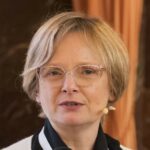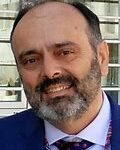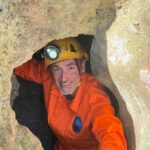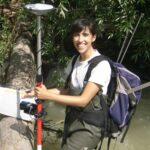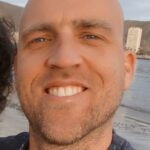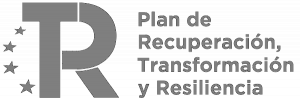Research Group on Extreme Geological Events and Heritage
Summary
The GEE&H research group addresses the analysis of extreme geological events using pioneering and innovative methodological approaches including: earthquake geology, archaeoseoseismology, geological hazards on volcanic islands, mass movements study and cataloging, flood paleohydrology, emergency geology, observation and characterization of geological events using UAS, education and training in geological hazards, and citizen science. It was officially constituted in 2021, although many of its members have been working together on these topics since the beginning of the 21st century. It currently consists of: 15 members; 8 men and 7 women; 13 geologists, 1 psychologist and 1 chemist; 9 PhD researchers and 6 senior technicians. The results obtained in the last five years by the members of the group amount to more than 400 quality scientific publications and the participation in more than a hundred research projects (leading about twenty).
Working areas
- Geology
- External Geodynamics
- Internal Geodynamics
- Geotechnics
- Volcanology
- Geomorphology
- Structural Geology
- Neotectonics
- Geophysics
- Sedimentology
- Petrology and Mineralogy
- Hydrology and Hydraulics
- Hydrogeology
- Quaternary Geology
- Geoarchaeology
- Geological hazards
- Geological heritage
Research and technical lines
- Earthquake geology
- Archeoseismology
- Speleoseismology
- Volcanology (tectovolcanism, volcanomagnetism, volcanic geology and geomorphology)
- Geological Hazards (volcanic eruptions, tsunamis and rockfalls)
- Geological heritage in volcanic islands
- Hydrogeology of the Canary Islands
- Study and cataloguing of ground movements
- Flood paleohydrology (sedimentology and dendrogeomorphology)
- Fluvial morphodynamics and hydrodynamics
- Fluvial geomorphology
- Sediment and woody material transport in rivers
- Morphological changes generated by extreme floods as well as by anthropogenic and global change impact on rivers.
- Emergency geology
- Observation and characterization of geological events by UAS
- Deep geological storage
- Education and training on geohazards and citizen science
Competences and abilities
All members of the group are trained as university graduates (15), and in addition 9 of them are PhD in Geological Sciences, with specialization masters, and with numerous academic awards, researchers and civil and military recognitions.
In recent years (2017-2021) they have published or participated in:
- Papers in prestigious international scientific journals (61).
- Articles in national or international non-indexed journals (16).
- Books or chapters of scientific and technical books (5+10).
- Scientific congresses and meetings (papers and communications) (31)
- Competitive international projects (17)
In the last two years (2021-2023) have participated or participate in:
- Competitive research projects (14 projects; budget 2.199.073,25 €)
- Contracts and agreements with companies and public administrations (9 contracts; budget 70.338,28 €)
- Patents or intellectual property registrations (3)
The competences and capabilities of some members of the group could be summarized as follows:
JUAN CARLOS GARCÍA has a degree in Geology from the University of Salamanca (1992), a Masters in Geological Engineering from the Complutense University of Madrid (1996) and a PhD from the University of Oviedo (2014). As Principal Scientist, he focuses his research on the detection, cataloguing, monitoring and analysis of hazards due to ground movements. To do this, it analyzes conditioning factors and triggers of the processes, obtaining data on their state and temporal evolution using classical Geological Engineering techniques (mapping, soundings, geophysics, rupture and deformation tests, etc...) and remote sensing techniques such as satellite radar interferometry (InSAR), differential GPS and UAV´s to finally develop models that help to understand these processes. Since 2016 he has been Director of Operations of the IGME Air Works Service and as a representative of IGME, he is a member of the PEVOLCA Scientific Committee, the PEINPAL Advisory Committee (La Palma Island Emergency Plan) and the group of experts on Geological Threats of the ASGMI.
JULIO LÓPEZ GUTIÉRREZ. Senior Specialist (IGME). Degree in Geology specialized in geology and geochesmistry of endogenous materials (Complutense University of Madrid, 1990). Working in IGME since 1992. The main competences deal with geological mapping, geological synthesis of underground information, neotectonics, fault population analysis, low permeability hydrogeology, hydrogeochemistry, deep geological storage, geology and hydrogeology of tunnels. Has worked in the whole Spanish territory but is specialized in the Betic Range, Hesperic Massif, Júcar and Duero Basins. Has been active in the volcanic emergency of La Palma (Canary Islands) 2021.
Outreach activities
Organization and participation (last 2 years, 2021-2023) in:
- Dissemination events and activities (36)
- Dissemination materials (publications, media...): 153
Some of the long-term periodic dissemination actions are:
- A todo riesgo. Living with everyday geological disasters. Science Week (2007 to 2023).
- Geolodía (2008 to 2023).
- Venero Claro Agua. Children's education on flood risk (2013-2023).
- Hidrogeodía (2018 to 2023)
Some of the latest outreach actions are:
- Participation in the mentoring network GERMEN Geólogas en Red Mentorización (https://mujeresygeologia.wixsite.com/mujeresygeologia/geologas-en-red).
- Inauguration of the exhibition "Ash and lava. Scientific revelations next to the volcano".
- Science and Cosmos Museum of Tenerife.
- Oral presentation at the 4th International Planetary Caves Conference in Lanzarote.
- XVII Congress of Students of the Chemistry Section of the University of La Laguna in Tenerife. Round table: Volcanic eruption Cumbre Vieja - La Palma 2021: A multidisciplinary scientific view.
- Oral presentation at the 10th Spanish-Portuguese Assembly of Geodesy and Geophysics in Toledo.
- Round Table. EMERGENCY GEOLOGY COURSE. WALKING THROUGH THE LAVAS OF THE VOLCANO OF LA PALMA.
- Round Table. Successful cases in communication and outreach around the volcanic eruption of La Palma, 2021.
- Oral presentation at the Copernicus 25th Anniversary Celebration in Stockholm.
- Geolodía: Landslides and rockfalls in the south of Gran Canaria: Citizen Observatory.
- Science behind the reconstruction of La Palma: Citizen science in geohazard prevention.
Links of interest:
- Estudio preliminar sobre la composición química de la lava de la erupción de La Palma de 2021. Estudio recién publicado en la revista Science Advances del IGME en colaboración con la Universidad Complutense de Madrid, la URJC, la Fundación Telesforo Bravo y La Universidad de Queensland donde intentamos arrojar luz sobre el volcán de La Palma a través del estudio de su lava. Revista Science Advances.
- Estudio para investigar la erupción de 2021 que se produjo en el volcán Cumbre Vieja (La Palma, Islas Canarias) Este estudio utilizó datos espaciotemporales de gravedad terrestre para investigar la erupción de 2021. Este modelo reveló un cuerpo de baja densidad debajo del flanco occidental del volcán que explica una estructura altamente fracturada y alterada relacionada con el volcán activo. Revista Remote Sensing
- Artículo que analiza de los resultados basados en SAR para apoyar la gestión de emergencia durante la crisis volcánica de la isla de La Palma. Estos resultados han permitido mapear la morfología del cono volcánico, la evolución de los flujos de lava y los desplazamientos regionales. Revista Remote Sensing of Environment.
- Artículo que describe un ejemplo de uso combinado de fotogrametría UAV y simulación numérica para en análisis de desprendimientos de rocas. En este estudio se ha caracterizado el peligro de desprendimiento de rocas en la pedanía de Los Carcavos del municipio de Ayna (Albacete), identificado las posibles áreas fuente y los bloques inestables en el talud. Mediante el uso fotogrametría UAV y simulaciones numéricas para: (1) reproducir los caminos seguidos por los bloques reales; y (2) estimar la velocidad y energía de los bloques, junto con sus alturas, impactos y puntos de parada, se han identificado los elementos expuestos en riesgo (edificios, instalaciones, infraestructuras, etc.) y se ha evaluado la eficacia de las medidas de mitigación frente a futuros eventos. Revista Remote Sensin
- Los terremotos que desencadenaron el temprano abandono de la ciudad califal de Medina Azahara en el siglo XI CE .En este trabajo se presentan las evidencias arqueosismológicas que afectan a los restos de la ciudad califal y que han permitido deducir que Medina Azahara fue seriamente afectada por un terremoto durante el siglo XI de nuestra era. Revista Applied Sciences (open access).
- Mapas de peligrosidad por avenidas e inundaciones. Guía metodológica para su elaboración. Libro digital gratuito con la guía metodológica para la elaboración de mapas de peligrosidad por avenidas e inundaciones, desarrollada por el IGME en el marco de PRIGEO inundaciones. Instituto Geológico y Minero de España
Training activities
More than half of the members of the group have teaching experience as university professors, in public and private centers, for decades and numerous academic courses and degrees (Geology, Environmental Sciences, Chemistry, Engineering, Architecture, etc.).
They also combine their current research and technical activity with:
- Teaching in undergraduate and Master courses:
- Thesis direction
- Direction of end-of-studies projects (TFC, TFG and TFM).
- Teaching in CSIC or ICU training courses.
Some of the last training activities are:
- MASTER IN INDUSTRIAL AND ENVIRONMENTAL BIOTECHNOLOGY. Subject: Biodeterioration, Faculty of Biological Sciences. UCM (4h)
- Master in EMERGENCY AND CATASTROPHE MANAGEMENT I: PLANNING AND RESPONSE. Subject: EARTHQUAKES AND VOLCANOES IN EMERGENCY MANAGEMENT. 4h. University of Malaga.
- Possibilities of the use of drones in Archaeology. Subject of Topography and Archaeological Drawing of the Archaeology Degree. UCM.
- Program 'Scientists in Practices' CSIC. "Application of drones in the study of geological hazards". EGE&P Group and STA (IGME).
- "Emergency geology, walking through the lavas of the volcano of La Palma". Course Menéndez Pelayo International University - CSIC.
- TFM co-supervision of Chiara Hauser "Extreme flood impact on riparian vegetation dynamics in the Ahr catchment, Germany" in the Master in Geoecology at the University of Tübingen (Germany).
- Co-supervision of TFM of Clemens Gacmen "Spatial riverine dynamics during the Eifel flood in Germany, 2021" in the Master of Geosciences at the University of Tübingen (Germany).
- Co-supervision of TFM of Michelle Siegel "Analysis of the sediment deposition during flash floods" in the Master of Geosciences of the University of Tübingen (Germany).
Involved projects
Available services
Scientific production
(Articles whose authors are group members)
Staff
Video gallery
© 2024 Instituto Geológico y Minero de España

